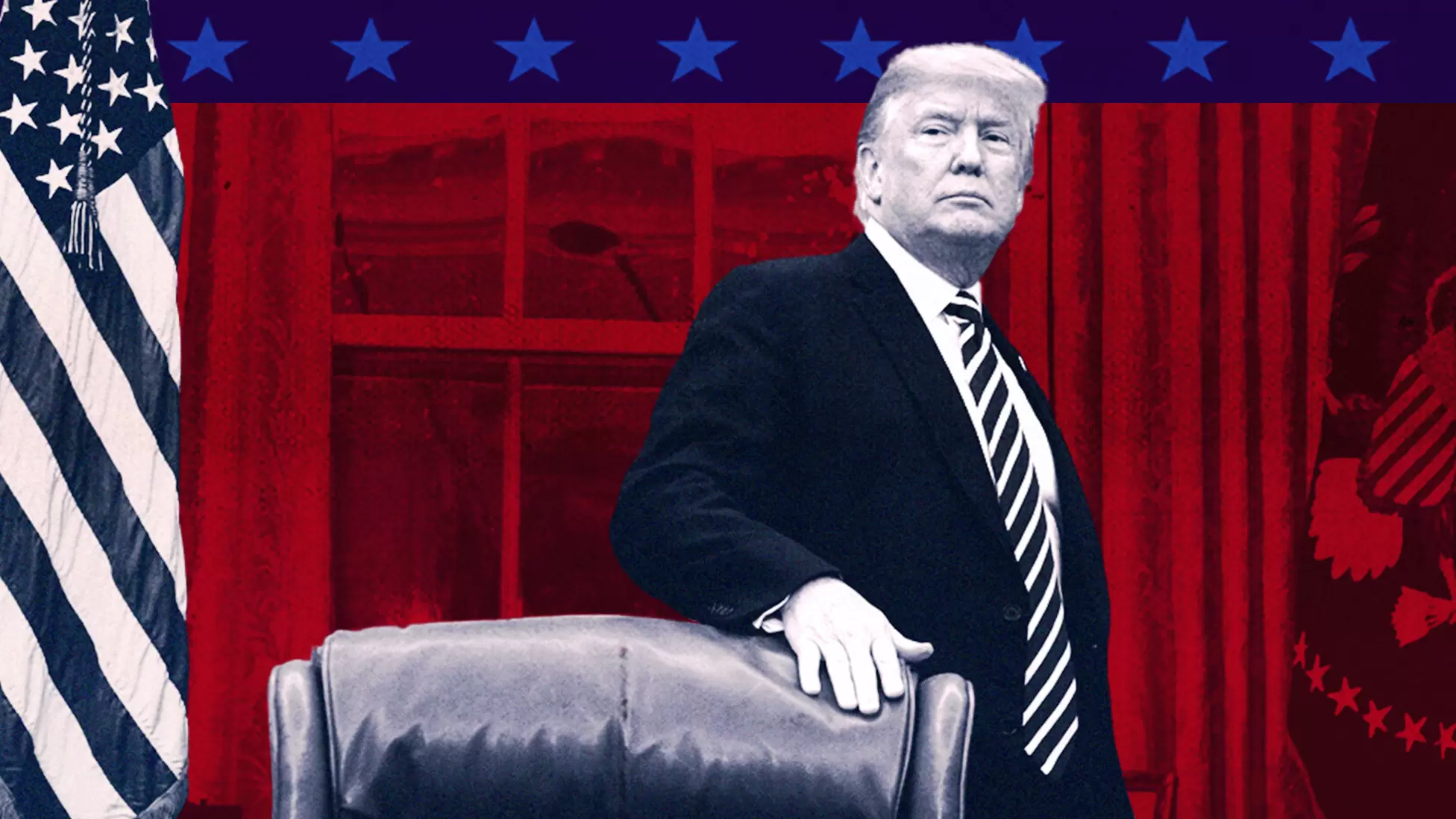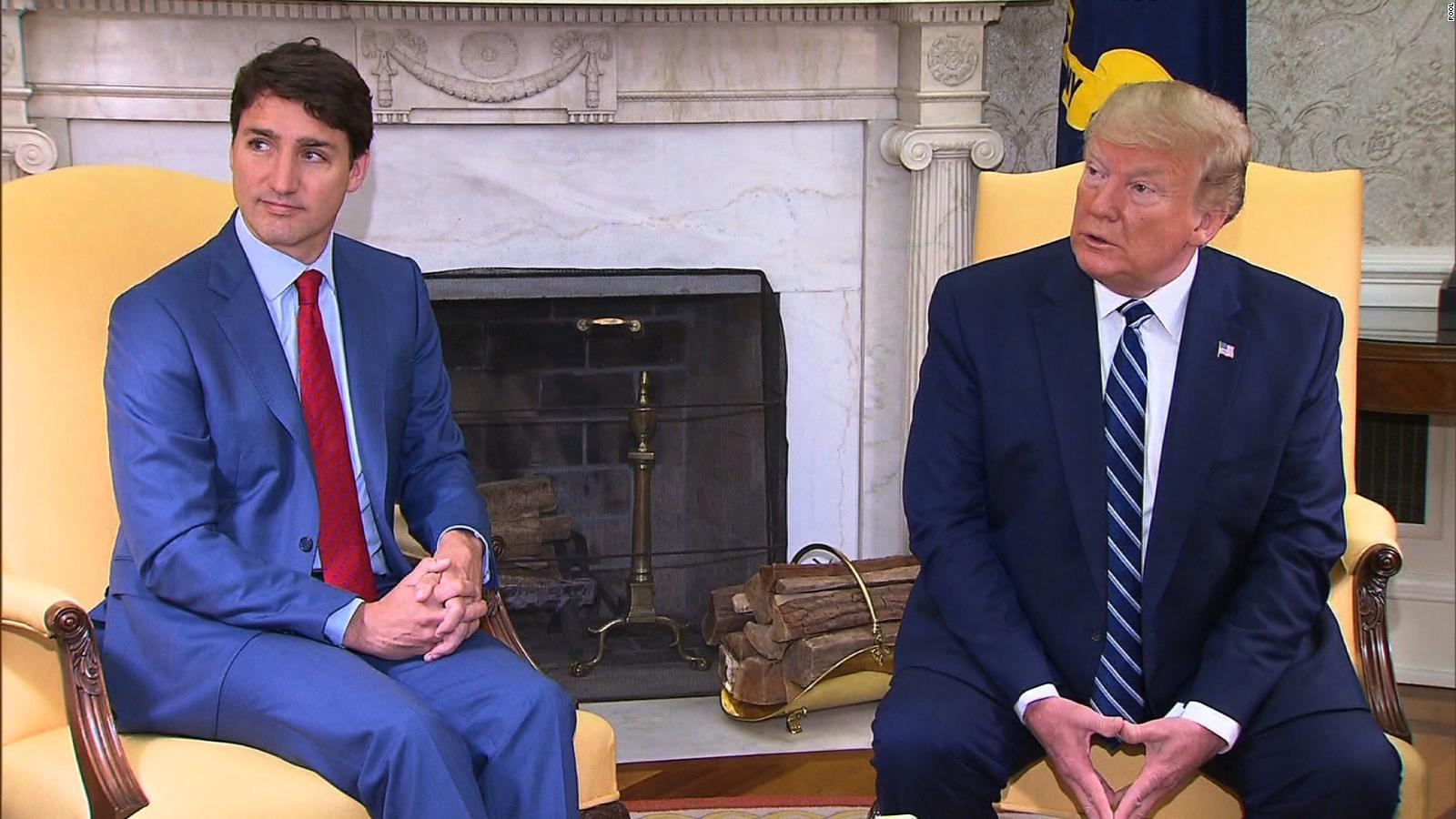Zuckerberg's New Chapter: Navigating The Trump Presidency

Table of Contents
The Rise of Misinformation and Fake News
The Trump presidency coincided with a dramatic surge in the spread of misinformation and fake news on social media platforms, with Facebook bearing the brunt of the criticism. This section delves into two key aspects of this problem: the proliferation of manipulated media and the fallout from the Cambridge Analytica scandal.
Facebook's Struggle with Deepfakes and Propaganda
The 2016 US election and subsequent years witnessed a significant increase in deepfakes and other forms of manipulated media. These sophisticated forms of propaganda posed a significant threat to the integrity of the electoral process and public trust.
- Examples of deepfakes: Videos depicting political figures saying or doing things they never did circulated widely, sowing confusion and distrust.
- Challenges in detection: Identifying deepfakes requires specialized technology and expertise, making it difficult for platforms like Facebook to effectively moderate such content.
- Impact on public trust: The proliferation of deepfakes eroded public trust in traditional media outlets and amplified existing political polarization. The inability to distinguish truth from falsehood created a climate of uncertainty and contributed to societal division. This became a major challenge for Facebook in maintaining its credibility as a source of information. Keywords: Facebook misinformation, deepfakes, fake news, election interference, propaganda, disinformation.
The Cambridge Analytica Scandal and Data Privacy Concerns
The Cambridge Analytica scandal, which broke in 2018, exposed the vulnerability of user data on Facebook and raised serious concerns about data privacy. This scandal involved the harvesting of personal data from millions of Facebook users without their consent, which was then used for targeted political advertising during the 2016 election.
- Data harvesting: Cambridge Analytica exploited Facebook's API to collect vast amounts of user data, including personality traits and political affiliations.
- User privacy violations: This unauthorized data collection represented a massive breach of user privacy and violated Facebook's terms of service.
- Regulatory responses: The scandal triggered widespread regulatory scrutiny of Facebook's data practices, leading to increased fines and stricter data protection regulations, such as GDPR in Europe.
- Impact on user trust: The scandal severely damaged Facebook's reputation and eroded public trust in the platform's ability to protect user data. This event highlighted the critical need for stronger data privacy protections and greater transparency in data handling practices. Keywords: Cambridge Analytica, data privacy, Facebook scandal, user data, GDPR, data security, privacy violations.
Political Advertising and Campaign Manipulation
Facebook's advertising platform became a central battleground for political campaigns during the Trump presidency. The platform's sophisticated targeting capabilities allowed campaigns to micro-target specific demographics with tailored messages, raising concerns about the potential for manipulation and undue influence.
Targeting and Micro-Targeting Strategies
Political campaigns used Facebook's advanced targeting options to reach specific voter segments with highly personalized advertisements. This allowed them to tailor their messages to resonate with individual voters' interests, values, and concerns.
- Examples of targeted ads: Ads were designed to appeal to specific demographic groups, based on factors like age, location, political affiliation, and interests.
- Impact on voter behavior: Research suggests that targeted advertising on Facebook can influence voter behavior and sway election outcomes.
- Ethical considerations: The use of micro-targeting in political advertising raises ethical questions about the potential for manipulation, the spread of misinformation, and the erosion of informed consent. Keywords: political advertising, Facebook ads, micro-targeting, targeted advertising, campaign manipulation, political influence, voter behavior.
Transparency and Accountability in Political Ad Spending
Ensuring transparency and accountability in political ad spending on Facebook proved challenging. The lack of sufficient disclosure about who was paying for political ads raised concerns about the potential for foreign interference and covert influence operations.
- Lack of transparency: The initial lack of transparency in Facebook's political ad system allowed for the possibility of hidden agendas and undisclosed sources of funding.
- Efforts to improve ad disclosure: Facebook subsequently introduced measures to improve ad transparency, requiring advertisers to disclose their identities and funding sources. However, loopholes and challenges remain in fully achieving complete transparency.
- Regulatory pressure: Governments worldwide increased pressure on Facebook to enhance transparency and accountability in political advertising, leading to calls for stricter regulations and greater oversight. Keywords: political ad transparency, Facebook ad transparency, accountability, campaign finance reform, foreign interference, political influence.
Censorship Debates and Freedom of Speech
Facebook's role in moderating content and balancing free speech with the need to prevent the spread of harmful information became a major point of contention during the Trump presidency. The platform faced criticism from both the left and the right, highlighting the complexities of content moderation in a highly polarized environment.
Balancing Free Speech with Content Moderation
Facebook's efforts to moderate content often faced accusations of censorship from both sides of the political spectrum. The platform struggled to find a balance between protecting free speech and preventing the spread of hate speech, misinformation, and other harmful content.
- Controversial content: Facebook grappled with decisions on what constitutes acceptable content, particularly regarding controversial political statements, hate speech, and violence.
- Community standards: Facebook developed community standards to guide content moderation, but the enforcement of these standards remained a source of ongoing debate.
- Censorship accusations: Facebook faced accusations of censorship from both conservatives and liberals, who felt their views were being unfairly suppressed.
- Challenges in content moderation: The sheer volume of content posted on Facebook makes effective content moderation incredibly challenging and resource-intensive. Keywords: content moderation, free speech, censorship, Facebook censorship, online safety, hate speech, political polarization.
Criticism and Backlash from Conservative Groups
Conservative groups frequently criticized Facebook for alleged bias and censorship, accusing the platform of suppressing conservative voices and viewpoints. This criticism highlighted the difficulties Facebook faced in maintaining neutrality and navigating accusations of bias from all sides of the political spectrum.
- Conservative backlash: Conservative politicians and commentators accused Facebook of systematically silencing conservative voices.
- Accusations of bias: These accusations contributed to an ongoing debate about the political neutrality of social media platforms.
- Challenges in maintaining neutrality: Demonstrating impartiality in content moderation amid intense political polarization became a near-impossible task for Facebook. Keywords: political bias, Facebook bias, conservative criticism, free speech concerns, political neutrality, content moderation bias.
Conclusion
Zuckerberg's leadership during the Trump presidency significantly shaped the future of Facebook and social media. Navigating the complex issues of misinformation, political advertising, and free speech proved to be a defining period. The legacy of this era, the "Zuckerberg Trump Presidency" period, continues to influence Facebook's policies and its relationship with users, policymakers, and the public. Understanding the challenges faced during this period is crucial for navigating the evolving landscape of social media and its impact on society. To delve deeper into this critical period, further research into specific instances of misinformation campaigns or political advertising strategies is recommended. Learning more about the Zuckerberg Trump Presidency is essential to understanding the future of social media.

Featured Posts
-
 Rapport Valeo Amf Cp 2025 E1027024 24 Mars 2025 Informations Cles
Apr 30, 2025
Rapport Valeo Amf Cp 2025 E1027024 24 Mars 2025 Informations Cles
Apr 30, 2025 -
 Trumps 51st State Comments Is He Trolling Canada
Apr 30, 2025
Trumps 51st State Comments Is He Trolling Canada
Apr 30, 2025 -
 Schneider Electric Trade Shows As Effective Marketing Touchpoints
Apr 30, 2025
Schneider Electric Trade Shows As Effective Marketing Touchpoints
Apr 30, 2025 -
 Kentucky Derby Week Weather Churchill Downs Collaboration With Emergency Personnel
Apr 30, 2025
Kentucky Derby Week Weather Churchill Downs Collaboration With Emergency Personnel
Apr 30, 2025 -
 Nba Skills Challenge 2025 Players Teams And The Competition Format
Apr 30, 2025
Nba Skills Challenge 2025 Players Teams And The Competition Format
Apr 30, 2025
